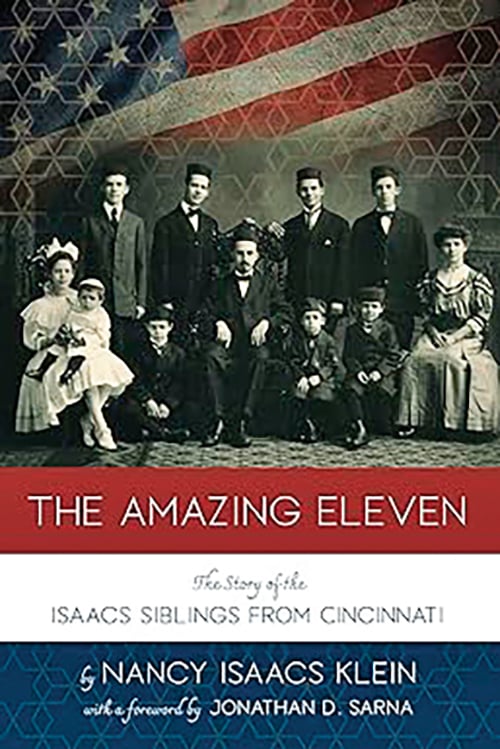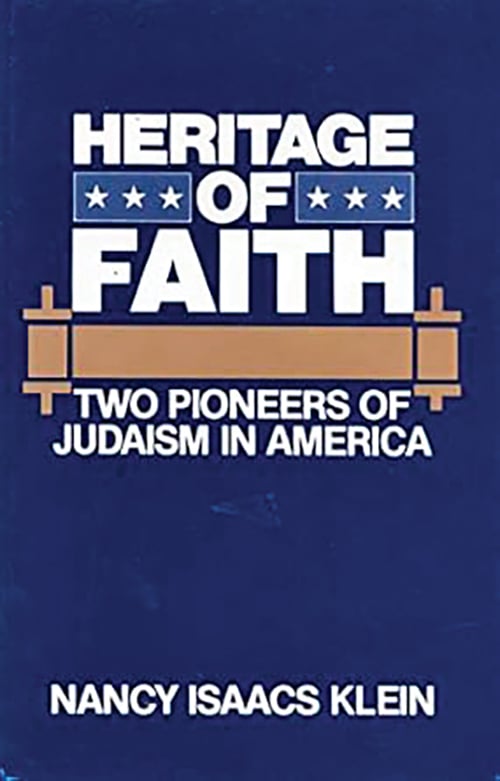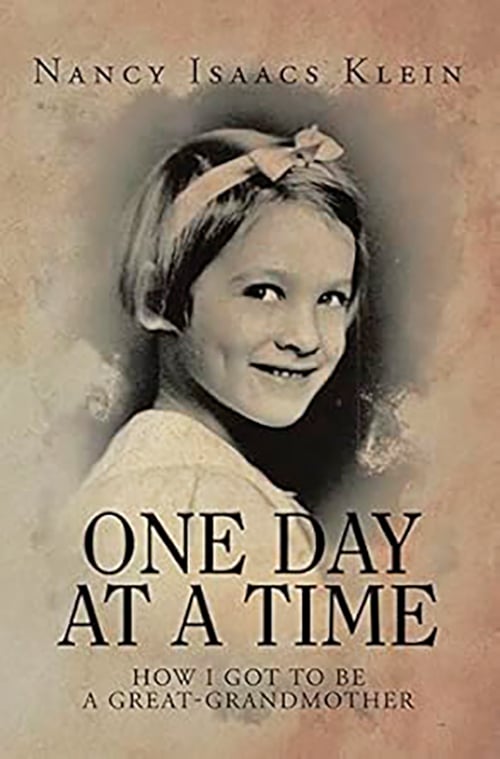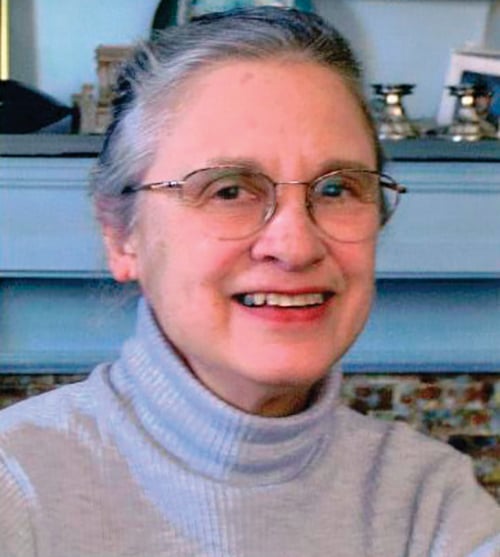
Reviewing: “The Amazing Eleven” by Nancy Isaacs Klein. Institute for Jewish Research & Publications. 2024. Paperback. 148 pages. ISBN-13: 978-1962609043.
Long-time Yonkers, New York resident Nancy Isaacs Klein doesn’t remember a time when she wasn’t writing. Writing for school publications since at least junior high, she honed her art writing for high school and college newspapers and magazines and later as president of the Women’s Branch of the Orthodox Union and as an administrator, creating and writing programming for its sisterhoods.
Her love of writing and a desire to share the family history of her amazing family have led her to write three books that convey the life and times of Jewish people in America from the mid- 1850s to the present day. She is the daughter of Elizabeth Klein Isaacs, dean of students at Stern College early in its existence, and Moses L. Isaacs, who was the dean of Yeshiva College for many years. Klein is a graduate of Barnard College (Phi Beta Kappa) and has been a “professional volunteer” for most of her life. She and her late husband, Sidney, have three sons and a daughter, 19 grandchildren and, at last count, more than 70 great-grandchildren.

Klein is the author of several family biographies and her own autobiography, having started with “Heritage of Faith,” the biographies of her father and maternal grandfather, as a way to honor her father after he passed away. Noting the similarities between the two men, she felt the book would be a fitting tribute. Her grandfather was active in pioneering Jewish life in New York City at the turn of the century. Originally published in 1987, Klein said, “It was very different researching before the internet.” Klein filled index cards from material gleaned from old newspapers and books in the New York Public Library and conducted in-person interviews with her mother, uncles and aunts to round out the information. Period photographs and reproductions of original material make the stories leap off the pages.
In her most recent book, “The Amazing Eleven: The Story of the Isaacs Siblings from Cincinnati,” Klein paints an intricately intimate portrait of the incredible Isaacs family. Not only did the 11 children grow into adulthood (a feat unto itself in the late 19th-early 20th centuries), but they all remained steadfast in their observance and adherence to Judaism and earned high honors in their college and graduate school studies.

“There was a lot of material I uncovered from papers my cousins had. I learned a lot about the family that I did not know previously,” said Klein. The antisemitism they encountered in the early 20th century was more “institutional” in nature. Judah was denied being named valedictorian because of a “technicality,” but in reality was because the school did not want the honor to go to someone of the Jewish faith. “Today’s students are once again experiencing antisemitism. The difference today is that it starts at more of a ‘grass roots’ level,” she said.
Having read “The Amazing Eleven” and conducted my interview with a “behind the scenes” look at the people in the book, I have an even greater appreciation for what the family went through. Societal norms prevented the two daughters from fully realizing their academic potential, but they served as part of the familial glue that kept the family together through to the next generation. Each sibling has their own chapter that focuses on their life and career. It isn’t necessary to read them in order but each chapter adds nuance to family relationships and the perspective of each of the siblings until you feel you know each one personally. “I probably should have written the book years ago when I could have gotten personal interviews, but it came about as the grandchildren were asking questions and wanting to know more about their ancestors,” explained Klein.
How has life changed in the last 90 years? Klein can share that information with a look back at growing up in the 1930s and 1940s and raising a Jewish family through the following decades in “One Day at a Time: How I Got to Be a Great-Grandmother.” Klein wrote the book while confined and isolated during the COVID pandemic. She had already written about so many family members and wanted to have something tangible to show for the time spent. “Most people would write an autobiography as a conceit. My intent was to make effective use of my time,” she added. Many of the “amazing 11 Isaacs siblings” are featured in this book as adults interacting with the author’s immediate family, bringing another facet to the collected stories.
Klein’s three sons and a daughter have inherited the “non-fiction writing gene” as well, whether using their skills to translate commentaries of the Torah from Italian, writing for the Jewish Standard newspaper, publishing books in Hebrew in Israel, or writing legal briefs. Would Klein consider writing fiction? “Absolutely not! My fiction writing comes off as if it was a college essay. I did take a course about writing plays in college. My grades rose over the course of the semester and I might have ended up with an ‘A’ if the class had continued for a few more weeks past its scheduled end date.”

The more the years go by, the more precious the memories become. It is wonderful that the Klein and Isaacs families have their histories and stories documented. We take so many of our memories for granted. “So many people don’t know the full names of their ancestors, let alone the many stories that made up their lives. We may know them now, but they won’t be preserved for the generations down the line unless something is done proactively,” said Klein. Writing about her family has made Klein more aware of history and how we reflect on our ancestry. “It is interesting to see family traits, personalities and attributes being repeated several generations down and being able to pass on the family connections and similarities.”
Get to know the Isaacs/Klein family from these readable books. And be motivated to learn about your own family history and stories.











